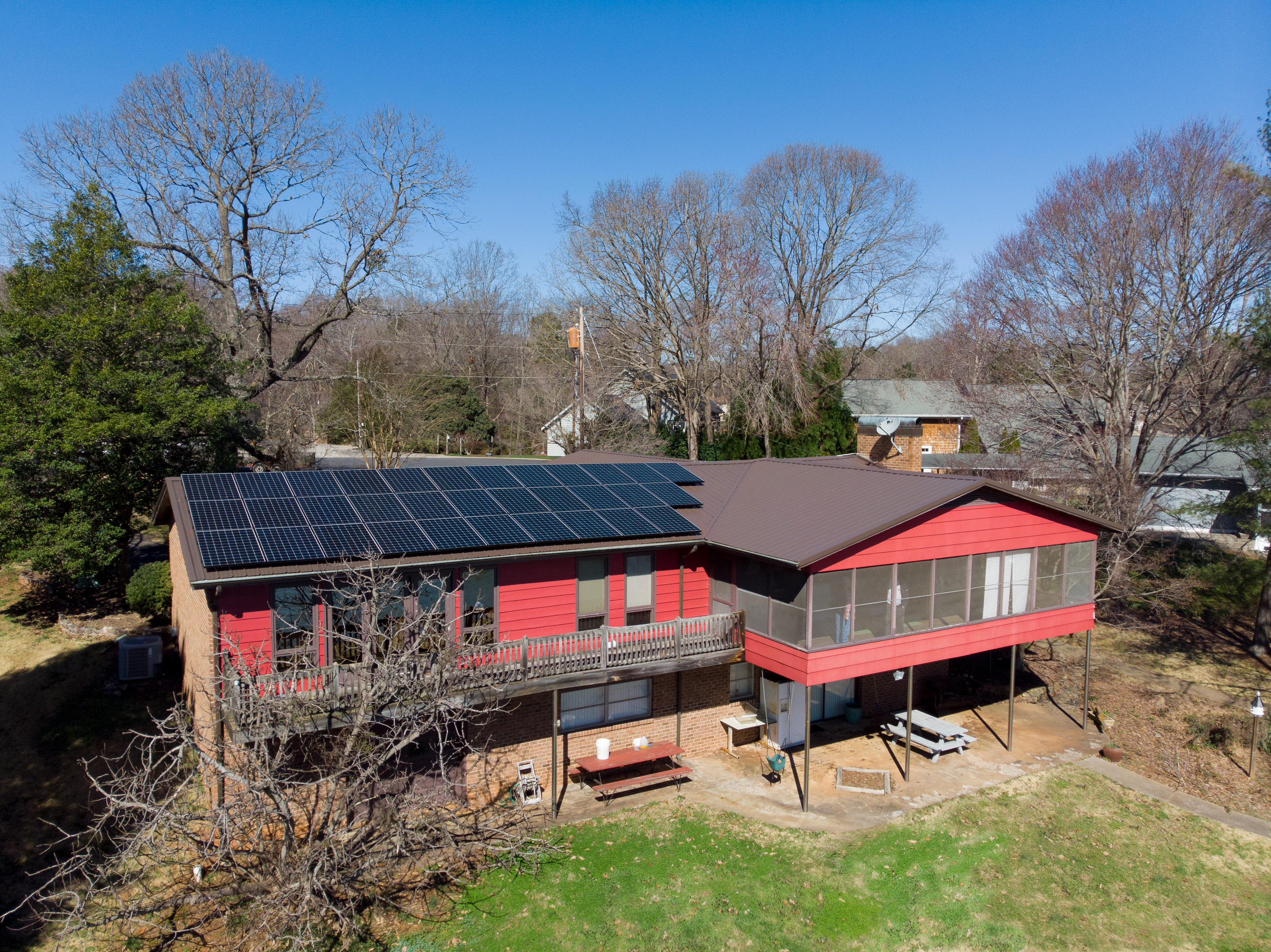8 kW Solar System
8 kW Solar System for your Home
In the Carolinas, an 8-kiloWatt solar system is just on the larger side of the average range of solar installs for residential homes. For many homeowners who want to install solar panels on their roofs, an 8-kilowatt (kW) solar energy system is the best size to significantly reduce electricity costs.
The components of energy use that would likely contribute to sizing a system around 8 kW are:
- Slightly larger home and/or larger family size, of about 6 people
- Most systems in the home are electric, as opposed to gas-fueled, and there may be a hot tub or other high energy use appliance present that increases energy demand
- In spite of energy-efficient lighting and appliances, utility bills exceed $200 in some months
- Solar systems in this size range are more likely to result if the customer determines with help from their tax preparer that they could potentially qualify for the federal solar tax credit of 30%
8 KW Solar PV system benefits
- Reduce your electric bill
- Receive up to 26% Federal Tax Credit. State Tax Credits may also apply
- Utility Rebates may also apply
How much electricity will an 8kw solar power system produce?
The amount of electricity that a solar energy system will produce will depend on several factors, including the location of the home, system design, and much more. Ideally, a home with an unobstructed south-facing view will produce more than enough energy.
Make The Switch To Home Solar Today
Switching to solar energy is now more affordable and more accessible than ever! Renu Energy Solutions offers $0 down financing in available 8 KW Solar PV Systems.
We understand every family’s budget, energy goals, and priorities are different. That’s why we create a custom plan to reduce each customer’s electric bill.

Frequently Asked Questions About Solar for Your Home:
How exactly does going solar and a solar system itself work?
How many solar panels do I need for my home?
Roof-size/available space: When we look at the size of your roof and the space available, we gather data that tell us the maximum number of solar panels your home or site can hold and we even consider shading. We use a software “Suneye” which takes a 360 picture of your roof and we use this photo to determine if your home is a good candidate for solar.
Energy Usage: When we determine energy usage we look at your past electrical bills from over the course of a year to make sure your system isn’t too big or too small.
Your Budget: We take your budget seriously and most importantly, we want you to be satisfied with our services. We take your feedback on how much you want to spend so that we can size your system appropriately.
What is solar net-metering?
Does Duke Energy offer net-metering?
Curious about the cost of a home solar system?
Ready to Own Your Own Energy?
Speak to Us Today!
